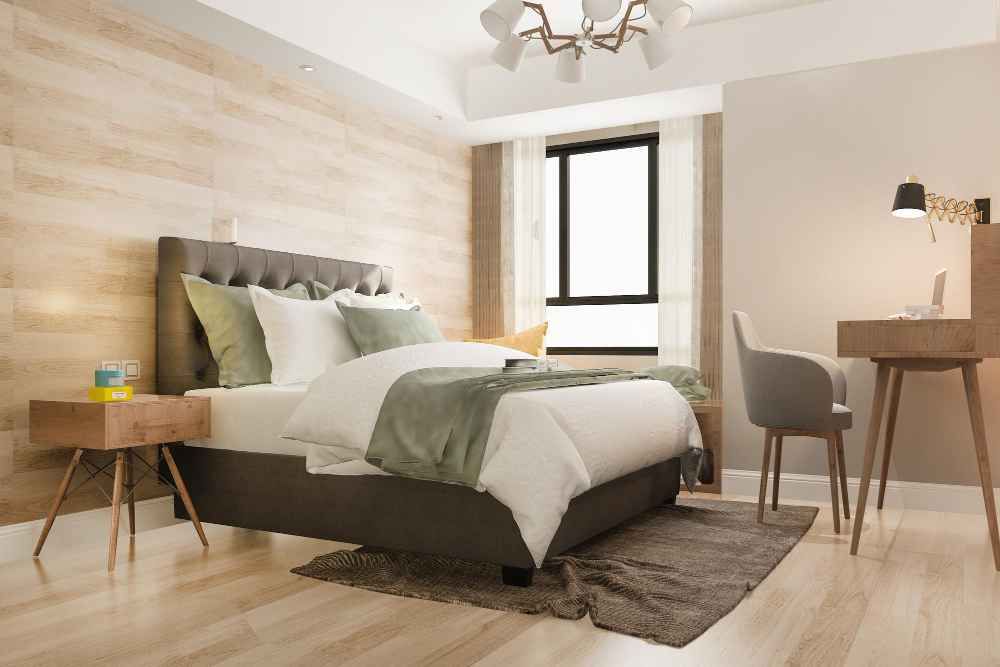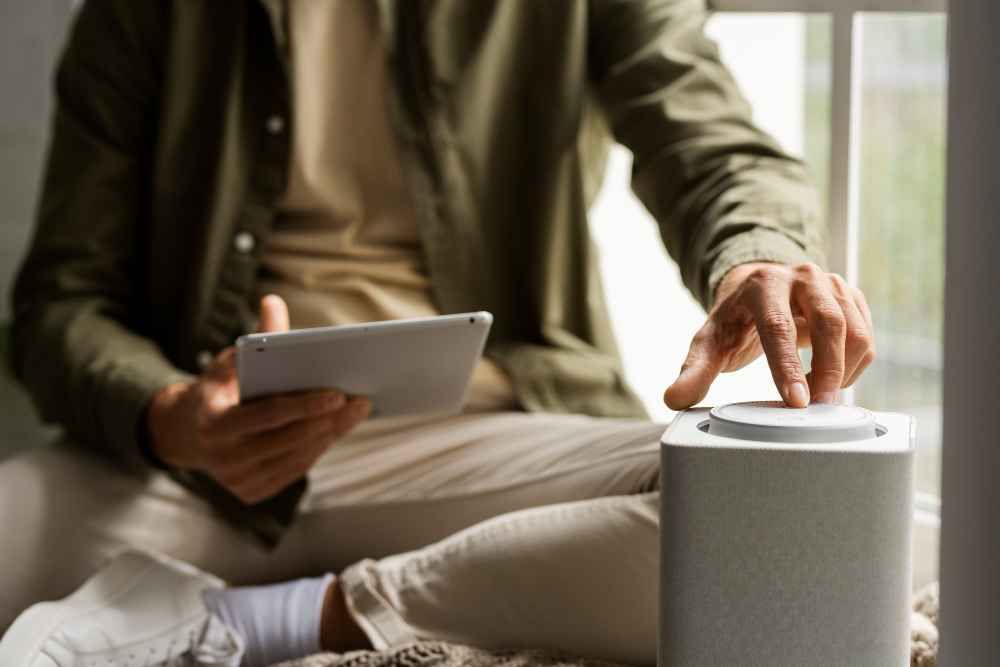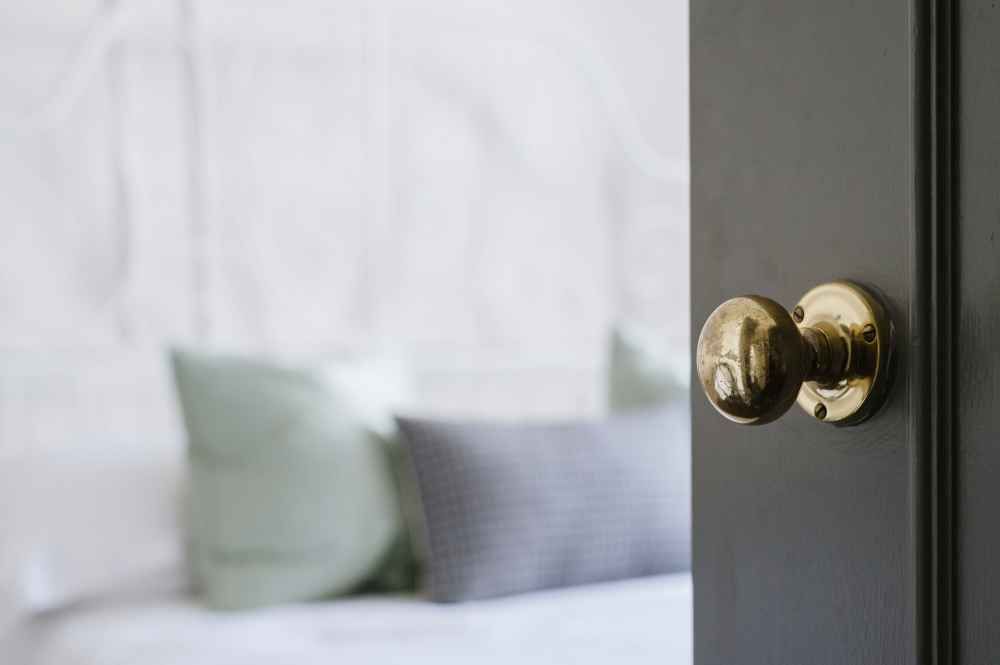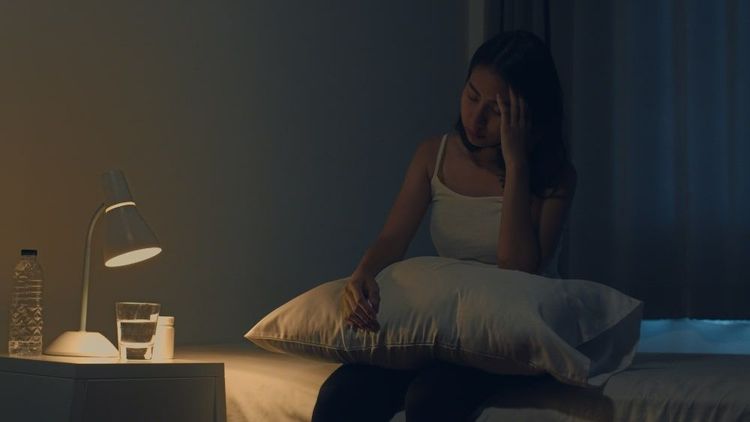Do you live in a noisy environment that makes it difficult for you to get a good night's sleep? When you wake up in the morning, do you feel tired and groggy instead of refreshed and energized? According to a study by the National Sleep Foundation, 74% of people report having trouble sleeping due to noise.
Noise pollution has become a growing concern in today's fast-paced world. With constant construction, traffic, and other sources of noise, it's no wonder so many people struggle to get a peaceful night's rest. However, with some simple changes and techniques, you can reduce the noise in your bedroom and improve your sleep quality.
Here, I'll discuss some ways to create a peaceful and quiet bedroom environment for better sleep. After reading this, you'll be able to enjoy a good night's rest without any disturbances.
You may also need: Morning Routine to Boost Metabolism: Start Your Day Off Right
Why is it important to minimize noise in your bedroom?
Noise can have a significant impact on our physical and mental health. Lack of sleep due to excessive noise can lead to fatigue, irritability, decreased concentration, and even long-term health problems. It can also affect the quality of your sleep, making it difficult to enter deep sleep stages.
Reducing noise in your bedroom is crucial for a good night's rest and overall well-being. Here are some reasons why you should aim to create a quiet and peaceful sleeping environment:
- Better quality sleep
- Reduced stress levels
- Improved cognitive function
- Enhanced mood and emotional balance
- Reduced risk of health problems
Reducing Noise in Your Bedroom
1. Soundproof your bedroom

The first step in reducing noise pollution in your bedroom is to soundproof it. This involves adding materials that absorb or block outside noise from entering the room. Some effective ways to soundproof your bedroom include:
- Installing heavy curtains or drapes
- Using sound-absorbing materials like acoustic foam panels or soundproofing wallpaper
- Placing bookshelves or furniture against the walls to create a barrier for sound waves
- Investing in double-paned windows
- Hanging thick rugs on the walls or using them as a carpet for your bedroom floor
- Fixing any cracks or gaps in windows or doors
By incorporating these soundproofing techniques, you can create a peaceful and quiet environment in your bedroom for better sleep quality and overall well-being. Additionally, soundproofing can also be beneficial for those who work from home or have a home office.
2. Use white noise machines or apps

White noise machines or apps can also be a useful tool for creating a peaceful bedroom environment. These devices produce a consistent sound that can mask unwanted noises and help you fall into a deep sleep. My favorite white noise app is "White Noise Lite," and it has a variety of sounds to choose from, such as rain, ocean waves, and fan sounds.
Others may prefer to use a white noise machine, which can be purchased at most home goods stores or online. One advantage of using a white noise machine is that it can be easily customized to your personal preferences.
You can adjust the sound type to find the perfect balance for your bedroom. Additionally, many machines have additional features like a timer or the ability to play multiple sounds at once.
3. Invest in Earplugs

Another option to consider is investing in a good pair of earplugs. This is especially helpful for those who live in noisy environments, such as near a busy street or with roommates who have different schedules. Earplugs can provide a barrier between you and the outside noise, allowing you to sleep peacefully without being disturbed.
When purchasing earplugs, find ones that fit comfortably and effectively block out sound. These will usually be made of softer material and provide a more comfortable fit for extended use. It's also important to properly clean and maintain earplugs, as they can become a breeding ground for bacteria if not taken care of. Make sure to read the instructions on how to clean and store them properly.
4. Keep the Bedroom Door Closed

Yes, even this small step can make a big difference in reducing noise levels. Keeping the bedroom door closed will create an extra barrier between you and any noise coming from other areas of the house. It's also a good idea to invest in a solid-core door, as they are better at blocking out sound compared to hollow doors.
Before going to bed, be sure to do one last check of all the doors and windows in your room to ensure they are properly closed. Any small gaps or openings can easily let in outside noise, so it's best to eliminate them if possible.
In addition to reducing noise, keeping the bedroom door closed also helps with privacy. Whether you live with roommates, family members, or even pets, closing the door can create a sense of personal space and privacy.
5. Position Your Bed Strategically

If your door is located near your bed, consider moving the bed to a different spot in the room. Yes, this may involve some furniture rearranging, but it can make a big difference in reducing noise. By moving the bed away from the door, you are creating more distance between yourself and any potential noise coming from outside the room.
You can also try positioning your bed against a wall that is not shared with a noisy area. This will create an extra barrier between you and any outside noise.
6. Turn Off Loud Appliances Nearby
Another way to reduce noise in your bedroom is to turn off any loud appliances or electronics that may be nearby. This could include things like a television, sound system, or air conditioner.
I notice that many people forget to turn off their TV when they go to bed. These appliances can create a constant background noise that may disrupt your sleep. By turning them off, you can create a quieter environment for yourself to sleep in.
How was it for me to reduce noise to sleep better?
I remember struggling with getting a good night's sleep due to noise pollution in my bedroom. I used to live in a busy city area where there were constant sounds of traffic, sirens, and people talking. This made it challenging for me to fall asleep and remain asleep through the night. After trying various methods, I eventually realized that reducing noise was the key to getting better sleep.
One of the first things I did was invest in some good quality earplugs. These helped block out most of the external sounds and create a more peaceful sleeping environment. I also made sure to keep my bedroom windows closed at night to prevent any outside noise from coming in.
I also started using a white noise machine that plays calming sounds like rain or ocean waves. It helps block out other noises and makes it easier to relax.
So, if you are bothered by noise at night, consider all of these options to create a more peaceful sleeping environment for yourself.
Conclusion
Finally, noise can have a significant impact on our sleep quality and overall health. From loud neighbors to traffic noise, many sources of noise can disrupt our sleep. However, by taking some simple steps, such as using earplugs or a white noise machine, we can reduce the impact of external noise on our sleep.
Additionally, creating a peaceful sleep environment by minimizing indoor noise and maintaining a comfortable temperature can also contribute to better sleep. Prioritize your rest and take action when necessary to ensure that you are getting the restful, restful sleep you need for optimal health and well-being.
Read More: 7 Easy Ways to Stay Active During Winter




